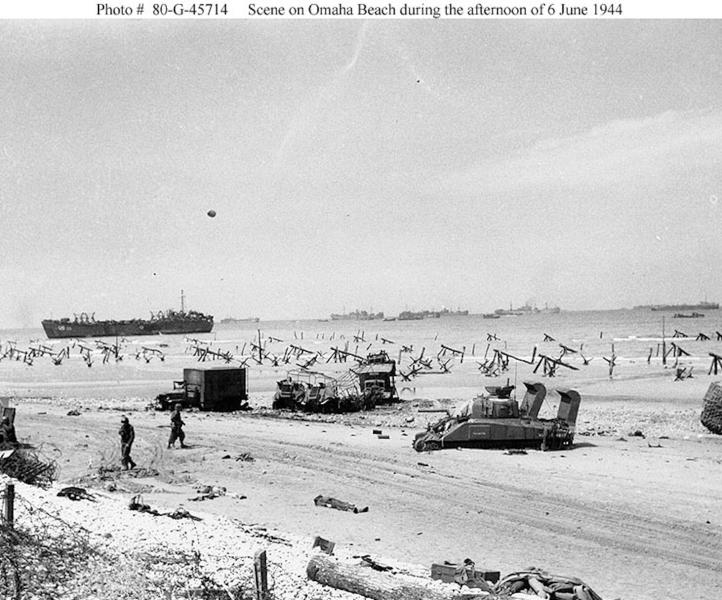
Celebrating the 60th anniversary of D-Day (from 2004) this month, we wanted to honor the men and women that risked their lives on a day that will live within the annuals of history forever. For those of us that were not there, we will never be able to imagine or understand the visual, physical and emotional horrors endured by so many brave individuals.
We understand there are some events that were so horrific where even today, the survivors can not discuss them. Therefore we wish to offer a special thanks to the following individuals for sharing their memories. We sincerely hope that no other generation will ever have to live through the type of events that took place on June 6th, 1944.
We also hope that by sharing these memories now, future descendants of the individuals that have agreed to share these stories, will feel a sense of pride and honor in their linage.
Franklin T. Wike, Jr.
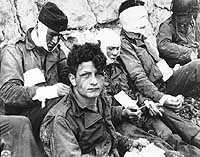
Note the group of African-American Soldiers in the near center distance, Sherman tank (with name Delphia on its side) beyond them, and USS LCT-855 stranded on the beach behind the tank.Photograph from the Army Signal Corps Collection in the U.S. National Archives.
___________________________________
From Wilhelm Reinhard Gehlen
I am German, but since my retirement, I live in TN. On June 6th, 1944, I was sitting in a flak bunker loading magazines and waiting for the inevitable air raid. I was a HJ Flak messenger for a battery of 20mm Quadrolupe anti-aircraft guns and our position was 5 miles nord-west of the Neersen Luftwaffe Airbase.
I was quite young & in the Hitler youth since 1942.
By 1943, after the Stalingrad debakel, the German army was short of manpower and had to replace 24 Divisions. Those 240,000 men were then mainly drafted from the home defense light anti aircraft (20mm & 37 mm). The Hitler youth took up the slack. The reasoning was, we could manage the rather light 20mm ammo and a 20mm Quad is no big deal to fire. The crews of the 88mm were unaffected as we could not handle the 40 pound shells required for them.
We were attached to 15th Light AA HJ Rgt. and the Neersen airbase was 6 km east of the city of Moenchengladbach. We changed position twice in the time from 43-45, once to re-enforce the Buna synthetic rubber plant at Marl - Huels and then in Dec 1944 we took 2 SP 20mm on prime movers to Clervaux & Wiltz in Luxembourg but lost one on Dec 29th , I think, in a low level attack by a bunch of P-47s Thunderbolts.
On the 31st December we were back in our old position and had a new gun for the one we lost (we picked that up on our retreat in a replacement pool in Baal, near Linnich).
Neersen Fliegerhorst was home to various units mainly 5th Jagd Geschwader that was commanded for a while by Adolf Gallant.
In 1944, around D-day time, a Staffel of Me-262 ( Jet fighters) were stationed there with the normal component of FW-190,s and Me-109.
The good news on June the 7th (the day after D-day) was a discussion amongst the Battery crew, that since the allies had gotten a foot hold on the Continent, it was going downhill for us. Nobody believed that we could send the Allies pell-mell back into their boats.
The bad news for us was, from that day onwards, we were under constant air alert for Fighter bombers prowling around in the vicinity.
We took things as they came. We did our duty, but half hearted and when it was all over, we were glad.
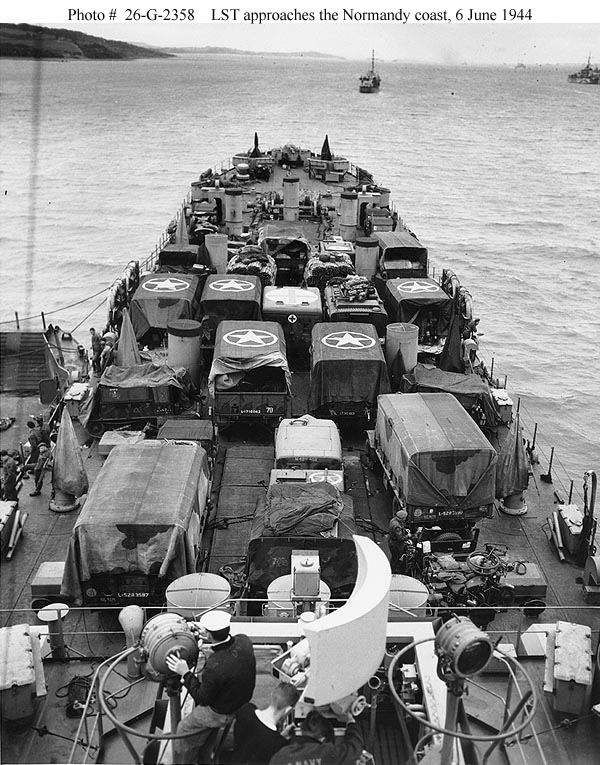
_____________________________
From Tony
On D-Day, I was in the Port of Manchester England with the 79th Infantry Division preparing to board a ship to France. The morale of the men was excellent, but there was some concern as to what the future would hold for each one of us.
The 79th Infantry Division arrived in England on April 19, 1944. We were camped in a field near Ashton in Makersfield. We remained there until May 30th. We moved by truck to Lype Hill in Somersetshire, England. On June 10, 1944, we move to Crown Hill Camp at Plymouth England. On June 13th, the 79th Infantry Division embarked on the waiting ships in the Port of Plymouth England.
We arrived at Omaha Beach in Normandy, France on June 14, 1944. The 79th went into combat on June 18,1944, along with the 4th and 9th divisions, battle was to take the City of Cherbourg.
I was a Second Lieutenant, leader of a Heavy Machine Gun Platoon with Company H 313, Infantry. Regt. at the time.
From Bernie
________________________________
On June 6, 1944, I was in Pungchacheng, China. The nearest big City was Chengtu, but I believe the name was changed since WW 2. We had gotten the news of the invasion, and we remained glued to a radio for hours. We had visions of going home in a couple of months. We started out in North Africa in 1942, then to Sicily and Italy. In January 1944, we were told to pack.
We thought we might be going home, but we headed east instead of west. We wound up in China a few weeks later and stayed there until January 1945. My brother was part of the D-Day action. He was wounded twice near St. Lo, on the same day. Once in an open place and again at an aid station that the Germans mortared. We had a radio available to keep us up to date on the invasion. All the news came to us by way of San Francisco.
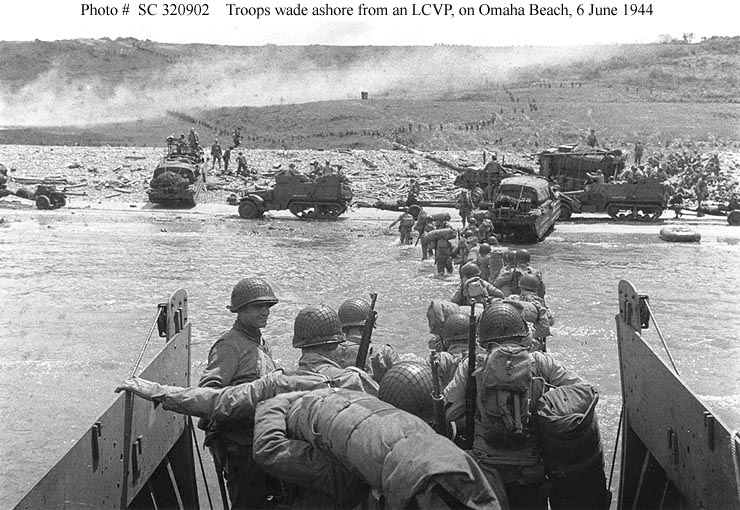
_______________________________
From Clyde
I was in Italy with the 465th BG. I was Officer of the Day with orders to close the LBar at 23:00 hours. I wasn’t sure whether I would get court-martialed or shot. We compromised all the whiskey which was all moved out side. The bar was closed and the drinking continued.
_______________________________
From Joe Haymes
I was in Ft. Jackson, SC, where my outfit, the 26th (Yankee) Infantry Division was being prepped to go overseas. I was walking down the company street (sand, unpaved) when I met someone who had just heard the news.

_______________________________
From Doc Ellis USAAF/USArmy/USAF 1942-1965
On D-DAY, JUNE 6, 1944, I was a 19-year-old SSgt, stationed at Swindon Fieldin England with the 877th Signal Service Co., 16th Air Depot Group.
I was a cryptographics specialist and on that particular day I was returning from a base near Southhampton where I’d picked up security documents to be used for D-Day-Plus communications. My driver, Cpl. Fredericks, had the radio on trying to dial up AFRS when the news was announced.
As we drove we heard Gen. Ike tell it like it was and we jazzed the Jeep back home as fast as we could...Some of the guys from our outfit were in a special communications team that went in on D-Day with the real soldiers. The rest of us Signaleers finally went in when it was safe on July 14, 1944 almost like tourists…
_______________________________
From Ed
So doc was a radio man also. Yes, we were busy that day on the radio. For three weeks prior to the invasion, we lost a lot of sleep because we were on the radio for seventeen hours each day. It was our job and we did it well.
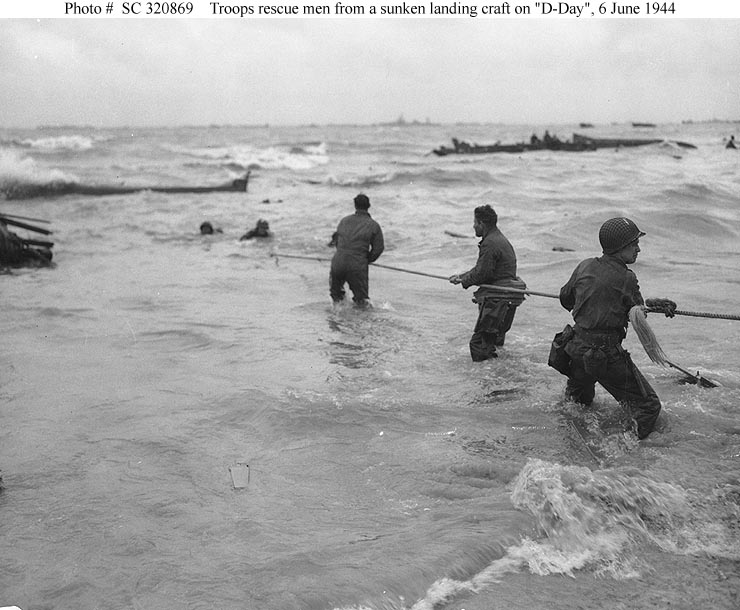
_______________________________
From E Woodward
I remember when they passed the word on it. We were fighting to save our ship. We sunk a submarine and shot down four planes but we lost number one mount to one of the kamikaze planes.
_______________________________
From Jim H
I was on the island of Sapian, with the 4th. Marine division.
_______________________________
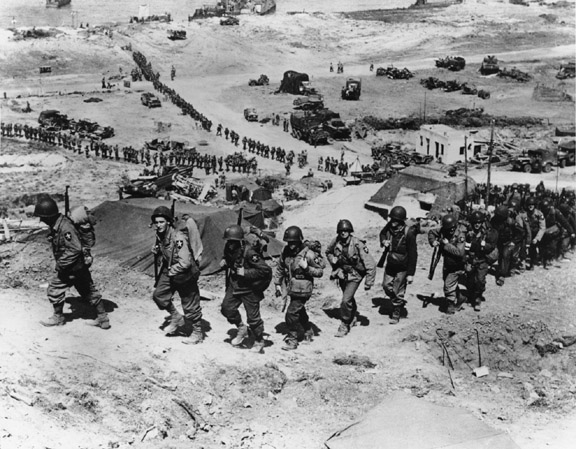
From Mary
I would guess everyone remembers where they were on D-Day.
I was at work at the Torpedo section when the guys in the Master At Arms Shack blasted the news over the loud speakers which reached every corner of the base. Very soon people were pouring out of their work stations...bawling, laughing, dancing and hugging and heading up to the little western town of Hawthorne, Nevada to celebrate the awesome event.
The following days had everyone counting their points and knowing that this phase of their lives would soon be over. It brought very mixed feelings.
_______________________________
Published in U S Legacies Magazine June 2004
- Log in to post comments
